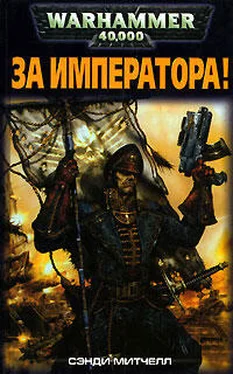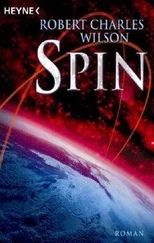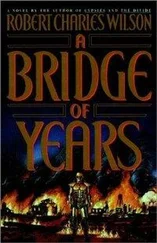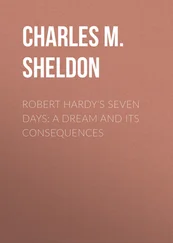Robert Charles Wilson
SPIN
4X109 A.D.
The Big House
Time Out of Joint
4X109 A.D.
Rumors of Apocalypse Reach the Berkshires
No Single Thing Abides
4X109 A.D.
Unquiet Nights
Under the Skin
Celestial Gardening
Snapshots of the Ecopoiesis
4X109 A.D.
Hospitality
Four Photographs of the Kirioloj Delta
4X109 A.D.
The Cold Places of the Universe
Sacrificial Rites
The Ticking of Expensive Clocks
4X109 A.D.
Desperate Euphoria
Home Before Dark
4X109 A.D.
By Dreams Surrounded
The Morning and the Evening
Spin
The Abyss in Flames
Ars Moriendi
4X109 A.D. / We All Land Somewhere
North of Anywhere
Acknowledgments
4X109 A.D.
Everybody falls, and we all land somewhere. So we rented a room on the third floor of a colonial-style hotel in Padang where we wouldn't be noticed for a while.
Nine hundred euros a night bought us privacy and a balcony view of the Indian Ocean. During pleasant weather, and there had been no shortage of that over the last few days, we could see the nearest part of the Archway: a cloud-colored vertical line that rose from the horizon and vanished, still rising, into blue haze. As impressive as this seemed, only a fraction of the whole structure was visible from the west coast of Sumatra. The Archway's far leg descended to the undersea peaks of the Carpenter Ridge more than a thousand kilometers away, spanning the Mentawai Trench like a wedding band dropped edge-up into a shallow pond. On dry land, it would have reached from Bombay on the eastern coast of India to Madras on the west. Or, say, very roughly, New York to Chicago.
Diane had spent most of the afternoon on the balcony, sweating in the shade of a faded striped umbrella. The view fascinated her, and I was pleased and relieved that she was— after everything that had happened—still capable of taking such pleasure in it.
I joined her at sunset. Sunset was the best time. A freighter heading down the coast to the port of Teluk Bayur became a necklace of lights in the offshore blackness, effortlessly gliding. The near leg of the Arch gleamed like a burnished red nail pinning sky to sea. We watched the Earth's shadow climb the pillar as the city grew dark.
It was a technology, in the famous quotation, "indistinguishable from magic." What else but magic would allow the uninterrupted flow of air and sea from the Bay of Bengal to the Indian Ocean but would transport a surface vessel to far stranger ports? What miracle of engineering permitted a structure with a radius of a thousand kilometers to support its own weight? What was it made of, and how did it do what it did?
Perhaps only Jason Lawton could have answered those questions. But Jason wasn't with us.
Diane slouched in a deck chair, her yellow sundress and comically wide straw hat reduced by the gathering darkness to geometries of shadow. Her skin was clear, smooth, nut brown. Her eyes caught the last light very fetchingly, but her look was still wary—that hadn't changed.
She glanced up at me. "You've been fidgeting all day."
"I'm thinking of writing something," I said. "Before it starts. Sort of a memoir."
"Afraid of what you might lose? But that's unreasonable, Tyler. It's not like your memory's being erased."
No, not erased; but potentially blurred, softened, defocused. The other side effects of the drug were temporary and endurable, but the possibility of memory loss terrified me.
"Anyway," she said, "the odds are in your favor. You know that as well as anyone. There is a risk… but it's only a risk, and a pretty minor one at that."
And if it had happened in her case maybe it had been a blessing.
"Even so," I said. "I'd feel better writing something down."
"If you don't want to go ahead with this you don't have to. You'll know when you're ready."
"No, I want to do it." Or so I told myself.
"Then it has to start tonight."
"I know. But over the next few weeks—"
"You probably won't feel like writing."
"Unless I can't help myself." Graphomania was one of the less alarming of the potential side effects.
"See what you think when the nausea hits." She gave me a consoling smile. "I guess we all have something we're afraid to let go of."
It was a troubling comment, one I didn't want to think about. "Look," I said, "maybe we should just get started." The air smelled tropical, tinged with chlorine from the hotel pool three stories down. Padang was a major international port these days, full of foreigners: Indians, Filipinos, Koreans, even stray Americans like Diane and me, folks who couldn't afford luxury transit and weren't qualified for U.N. approved resettlement programs. It was a lively but often lawless city, especially since the New Reformasi had come to power in Jakarta.
But the hotel was secure and the stars were out in all their scattered glory. The peak of the Archway was the brightest thing in the sky now, a delicate silver letter U (Unknown, Unknowable) written upside down by a dyslexic God. I held Diane's hand while we watched it fade.
"What are you thinking about?" she asked.
"The last time I saw the old constellations." Virgo, Leo, Sagittarius: the astrologer's lexicon, reduced to footnotes in a history book.
"They would have been different from here, though, wouldn't they? The southern hemisphere?" I supposed they would.
Then, in the full darkness of the night, we went back into the room. I switched on the room lights while Diane pulled the blinds and unpacked the syringe and ampoule kit I had taught her to use. She filled the sterile syringe, frowned and tapped out a bubble. She looked professional, but her hand was trembling. I took off my shirt and stretched out on the bed.
"Tyler—"
Suddenly she was the reluctant one. "No second thoughts," I said. "I know what I'm getting into. And we've talked this through a dozen times."
She nodded and swabbed the inside of my elbow with alcohol. She held the syringe in her right hand, point up. The small quantity of fluid in it looked as innocent as water.
"That was a long time ago," she said.
"What was?"
"When we looked at the stars that time."
"I'm glad you haven't forgotten."
"Of course I haven't forgotten. Now make a fist."
The pain was trivial. At least at first.
THE BIG HOUSE
I was twelve, and the twins were thirteen, the night the stars disappeared from the sky.
It was October, a couple of weeks before Halloween, and the three of us had been ordered to the basement of the Lawton house—the Big House, we called it—for the duration of an adults-only social event.
Being confined to the basement wasn't any kind of punishment. Not for Diane and Jason, who spent much of their time there by choice; certainly not for me. Their father had announced a strictly defined border between the adults' and the children's zones of the house, but we had a high-end gaming platform, movies on disk, even a pool table… and no adult supervision apart from one of the regular caterers, a Mrs. Truall, who came downstairs every hour or so to dodge canape duty and give us updates on the party. (A man from Hewlett-Packard had disgraced himself with the wife of a Post columnist. There was a drunken senator in the den.) All we lacked, Jason said, was silence (the upstairs system was playing dance music that came through the ceiling like an ogre's heartbeat) and a view of the sky.
Читать дальше












